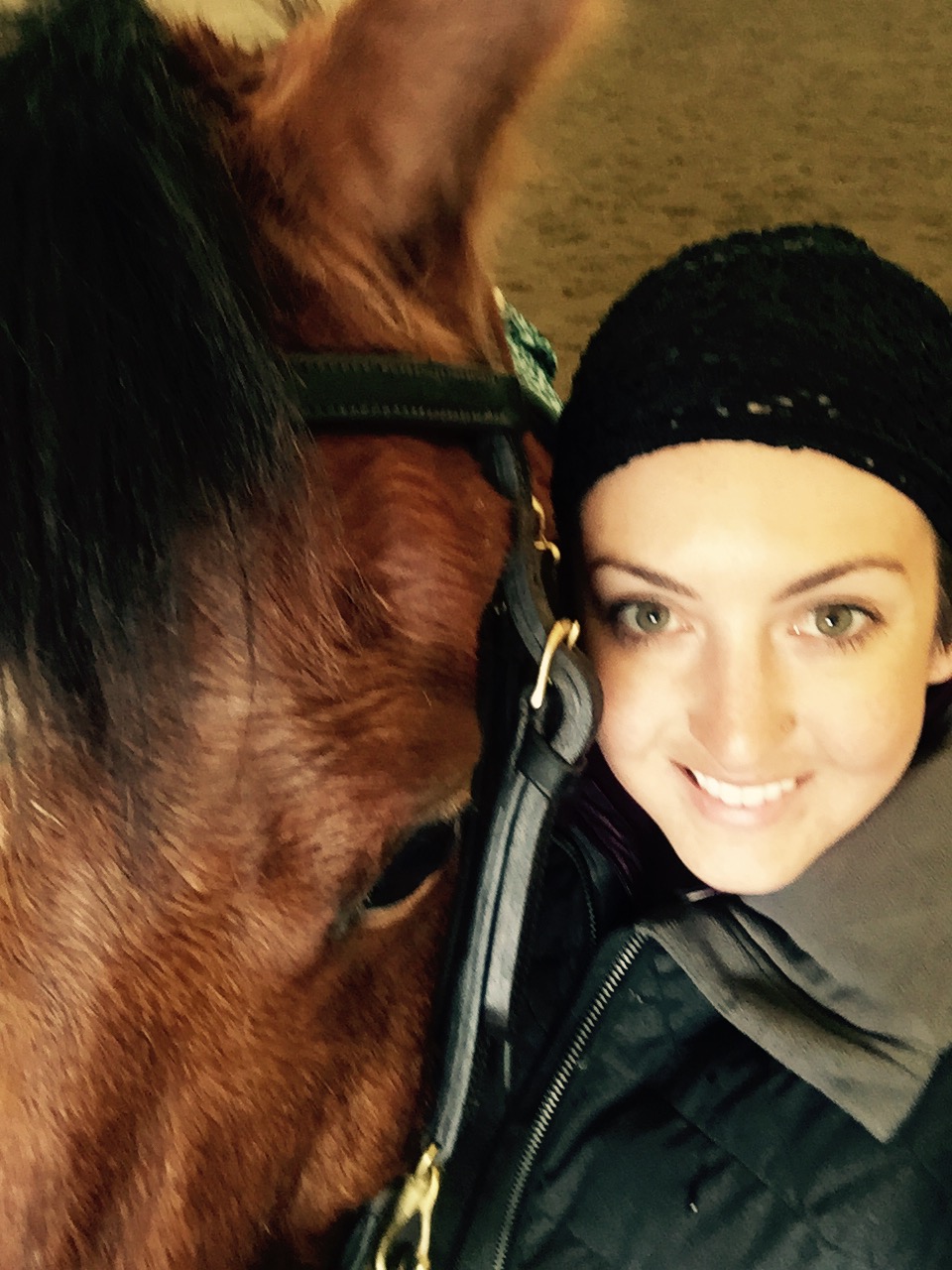 Sarah is a horse trainer in Northern California with a rare genetic disorder that currently does not have a cure.
Sarah is a horse trainer in Northern California with a rare genetic disorder that currently does not have a cure.At age 20 Sarah started to notice the early signs of what would become some significant physical limitations. She noticed a decreased muscle mass and an increase in anxiety and stress. This would lead first to an abnormal gait and a reduced ability to function normally in everyday physical activity that the rest of us take for granted such as running, walking up or down stairs, getting up from a sitting position, squatting or kneeling. She soon found that she was prone to sudden falls, leading to scrapes, bruised knees, ripped jeans, and shattered confidence.
Following some very invasive medical testing that included muscle biopsies and a spinal tap, Sarah was formally diagnosed with Late-Onset Tay-Sachs Disease just before her 28th birthday. Since then, her symptoms have continued to progress making everyday life increasingly difficult -- especially for a passionate horse trainer.
Tay-Sachs Disease is defined by a mutation in the hexosaminidase subunit alpha (HEXA) gene. The HEXA gene is responsible for the production and regulation of the HEXA enzyme, which, in turn, breaks down the GM2-ganglioside lipid within the body's cells. With a reduction in the enzyme, this lipid accumulates in the brain and nerve cells leading to the death of these cells and an irreversible deterioration of the central nervous system. Six weeks ahead of Sarah's 30th birthday, her HEXA enzyme is functioning at 9% according to recent genetic testing.
There is no treatment or cure for Late-Onset Tay-Sachs Disease, but there have recently been encouraging advances in research and investigational therapies. Gene therapy has shown the most promising results. Theoretically, gene therapy allows for a defective gene to be replaced by a normal gene, enabling the proper production of the HEXA enzyme. The NTSAD and its Scientific Advisory Committee directs, funds, and promotes research to develop treatments and cures. Through its Research Initiative grant program, it identifies promising new therapeutic approaches to fund.
On October 26th, we will be celebrating Sarah's 30th birthday with the hope that progress in research efforts may soon be able to prevent further progression of the disease. As of today, Sarah keeps the reality of this disease private, instead opting to hope that people at work, friends and family will continue view her as "typical" and able-bodied. She hopes to be able to live a long life that allows her to continue to walk, drive, live independently and do the work she loves. To support her in this, her family is coming together to raise funds to support research efforts. These funds for research will support not only Sarah, but also families with loved ones enduring this same disease. Please donate whatever you can. Every little bit helps, offers hope, and sends a message of love and support to Sarah and others suffering similarly.
